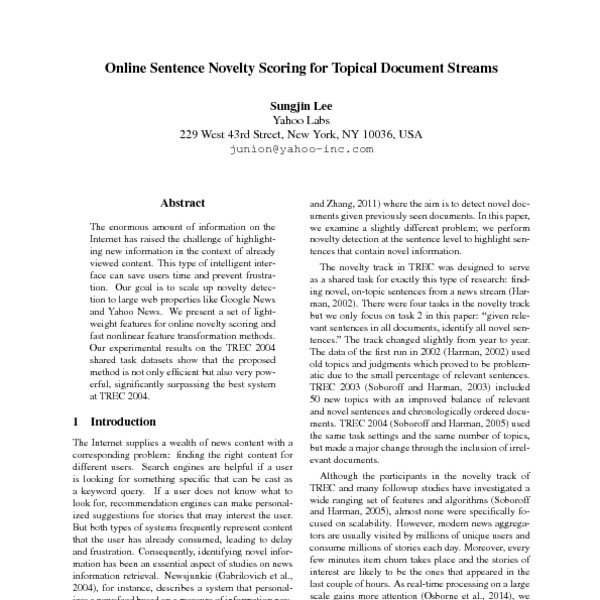What is online privacy is and why is it? Online privacy, likewise understood as web privacy or digital privacy, refers to how much of your individual, monetary, and searching information remains personal when you’re online.
Many people underestimate the value of online privacy, but they should understand how much info they’re sharing– not just on socials media but simply through searching itself. What are those privacy problems that you might come across? And how can you securely share your personal information online? Read on to find it out.
The value of digital privacy becomes clear once you try to make a psychological list of personal things you’re all set to show complete strangers– and those you ‘d rather not. For sure, you do not desire your medical records, bank statements, and even particular items from your shopping cart to be extensively known. Anybody who watched You saw how simple it was for people to get hold of somebody’s individual info like house address, good friends’ names, tastes, or preferred locations based on what they openly shared.
Online Privacy And Fake ID – The Best Way To Be More Productive?
Yes, you can make your social networks account private and share only particular content with a particular group of people. How can you actually understand what social media does with the data you share? And what about your other online traces, like browsing history, purchases, or even your online correspondence?
A poll of American web users exposed that 81% of participants believed they had no control over information gathered by personal business. Even even worse– the number reached 84% when people were asked if they might manage what information the federal government gathered.
Be Taught Something New From Online Privacy And Fake ID Currently? We Requested, You Answered!
To address similar issues, the EU adopted the GDPR, or the General Data Protection Regulation. This set of laws, passed in 2015 and executed in 2017, was planned to secure every EU person’s privacy and data.
California’s equivalent CCPA likewise gives consumers 4 standard rights to control personal info on the web. The right to understand what individual details an organization gathers about them and how it is used and shared. You’re basically increasing the danger of having your details stolen.
At the same time, some tech business keep client information going back to years ago. They’ve been logging every website or blog they checked out, all their preferences, shopping practices, political views, and much more. How can you address that?
The right to be forgotten is the right to ask business to erase and surrender any info they’ve collected about you. It covers online chatting and third-party discussions.
Individuals have battled to eliminate their names and images from “revenge pornography,” including any appropriate search engine results. Some have sent take-down ask for uncomfortable individual stories from their past, for example, petty crime reports or humiliating viral stories.
If Online Privacy And Fake ID Is So Horrible, Why Don’t Statistics Present It?
Probably, the right to be forgotten protects those who want to forget about their old mistakes and restore privacy. The opposite camp, by the way consisting of some tech giants, criticizes this as censorship and rewriting of history.
 Info privacy (also called information privacy) is a branch of data security focused on correct information handling, consisting of approval, notification, and regulative obligations. Basically, it’s an ability to control what information you reveal about yourself on the internet and who can access it.
Info privacy (also called information privacy) is a branch of data security focused on correct information handling, consisting of approval, notification, and regulative obligations. Basically, it’s an ability to control what information you reveal about yourself on the internet and who can access it.
As a crucial part of details sharing, information privacy is an umbrella term for data masking, encryption, and authentication are simply a couple of methods utilized to ensure that information is offered just to the authorized parties.
Why Online Privacy And Fake ID Is The Only Skill You Really Need
Online privacy and security are closely related ideas that affect your cyber safety. There are some specific distinctions between them. Digital privacy refers to the appropriate usage, managing, processing, and storage of individual information. Information security has to do with protecting information against harmful attacks or unapproved gain access to.
The way social media manages your details is an element of digital privacy. As a rule, you consent to security and privacy policies by clicking “I concur” to the company’s privacy policy and Conditions and terms.
Online privacy problems vary from the information you don’t mind sharing (state, a public social media account) and frustrating privacy trade-offs like targeted ads to public humiliation or breaches that impact your individual life. They also track online sites that you visit after that.
Taken together, this info can be utilized for “profiling”, or making a client personality based on the person’s surfing, shopping, and social media preferences. To name a few things, customer personas are extensively used in customizing advertisements. Profiling ends up being a serious privacy concern, though, when data-matching algorithms associate somebody’s profile with their personally identifiable details, as this might lead to information breaches.
Social media data harvesting
Over the last few years, social networks privacy hit the spotlight after a string of scandals, including the Cambridge Analytica story when they used data to manipulate voters, cyberbullying, and “doxing” (sharing personal info openly).
Significant social networks have actually suffered data breaches, leaving millions of users exposed. A recent example is Facebook’s massive data breach that exposed the individual data of 433 million users, including their full names, telephone number, locations, birth dates, bios, and e-mail addresses. Quite a few people realize that, sometimes it may be essential to sign up on online sites with many individuals and fictitious specifics might wish to think about Yourfakeidforroblox.Com.
For the most part, cookies are even helpful and harmless. These pieces of law collect your searching details and let internet sites remember your login, preferences, language settings, and other details. Nevertheless, cookies may become a concern when it comes to vast quantities of data collected without user permission.
In December 2020, France’s data protection regulator, the Commission Nationale de l’informatique et des libertés (CNIL), ruled that Google and Amazon had to pay 121 million dollars and 35 million euros for breaching Article 82 of the French Data Protection Act. CNIL fined both companies for putting tracking cookies on their user’s computers without prior permission. Google went even more and tracked users who had shut down ad personalization.
COVID-19 has pressed individuals to migrate into mobile. The current App Annie report mentions that the users’ typical time invested with their mobile phones topped 4 hours 10 minutes in 2020– up 20% from 2019. More time invested in mobile means more internet browsing, ads clicking, and, of course, app downloads. As a result, our apps have learned a lot more about us.
Can we be one hundred percent sure what exactly those apps understand about us? Some go further and ask you for dangerous permissions– details that could cause problem if it fell into the wrong hands.
An excellent rule of thumb is to consider whether you trust the app service provider to keep this info. If there’s anything you feel unpleasant about, you can deny access, either when the app asks you for approval or later in the app’s settings.
Identity theft is nothing brand-new. It has actually been a criminal activity long before the internet. But new technology has opened fresh avenues for scam artist and burglars. When someone accesses your personally identifiable information (PII) to dedicate fraud, online identity theft takes place. This information might be your driver’s license, bank account details, tax numbers, or anything else that can be used to impersonate you online. In the worst-case situation, your info may wind up for sale on the dark web.
Crooks impersonate trustworthy contacts, such as financial institutions, to fool you into giving up sensitive info or opening harmful accessories. Harmful software application that can access your gadget’s os and permit hackers to steal your personal information.
All those privacy and security issues on the internet may sound frightening and can make you feel powerless, however there are easy steps you can take today to cut the danger of online scams. We assist you handle and safeguard your individual information if you worry about how much of your personal details is readily available on the web.
Hackers utilize numerous plans to take your information. A number of them might not be obvious at first sight. Consider utilizing an approximately date, industry-leading antivirus software on your device, whether it’s a mobile or computer.
To maintain your privacy on the internet, you can alter DNT settings in your browsers. When you allow it for your surfing in Chrome, Firefox, or another browser– you tell internet sites and third-party partners that you do not wish to be tracked.
You can also limit your apps’ access to your personal information by going to your app or phone settings and opting out of location or other information tracking.
A typical error in online browsing is to merely click “concur” to any user agreements and privacy policies without reading them. We highly suggest looking through any document before clicking “agree” or “accept.”.
If you do not have time to read it (and some user contracts are numerous pages long), do at least some research study of what type of details the app or online site asks of its users and whether you’re comfy with that.
It may be a good idea to switch to another engine if you’re worried about what your search engine understands about you. DuckDuckGo, for instance, markets itself as a more safe and secure and private option to Google.
Don’t click links to risky or phony websites, or you risk succumbing to a phishing attack and giving up your delicate information to a scammer. Some phishing threats are masked as ads, so be extra careful with those.
If you follow these recommendations, you’ll know where the danger might hide. Which will help you keep your online privacy safe.
SEARCH ENGINE OPTIMISATION Made Simple For 2011









 Are all people exposed to cyber criminal activity and can you secure yourself online? Numerous users do not inspect websites on which they discover details. There are frequently indications that websites you go to can be malicious and engineered to deceive users to establish an account and download malware from them.
Are all people exposed to cyber criminal activity and can you secure yourself online? Numerous users do not inspect websites on which they discover details. There are frequently indications that websites you go to can be malicious and engineered to deceive users to establish an account and download malware from them.